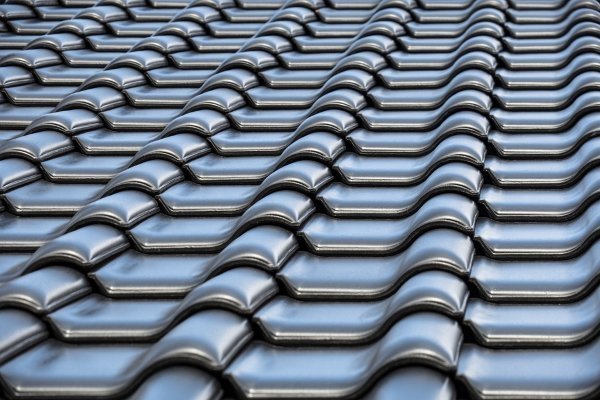
Two kinds of roofing materials can last beyond 50-70 years of age. One of them is the beautiful and naturally-created clay tiles. These tiles may turn brittle and weak to human weight (even steps). However, they can last for more than 70 years and withstand hailstorm stones. The best palaces of the early centuries have used clay tiles, which make them undeniably reliable. However, residential steel roofing is the second one to rival their capabilities.
What makes residential steel roofing special? Metal is indeed indestructible and aesthetically a symbol of strength and capability. Does it translate as realistically as it sounds? You're just about to finish deciding on your roofing and you've got a bias on steel roofs. Are you right in doing so?
The answer is: it depends. Learn more below.
Steel is a powerful roofing material. In fact, it's a great composite metal alloy used for erecting buildings big and small. With special fabrication machines, designers can create complex structures that allow builders to assemble and secure sophisticated architecture.
Residential steel roofing shares the same strength as steels used in structural developments. While bare steel is vulnerable to moist that causes corrosion, galvanization and galvalumation helps extend its lifespan and performance. Learn more about steel's tensile strength below from Steel Forge:
TENSILE STRENGTH
The term tensile strength refers to the amount of tensile (stretching) stress a material can withstand before breaking or failing. The ultimate tensile strength of a material is calculated by dividing the area of the material tested (the cross section) by the stress placed on the material, generally expressed in terms of pounds or tons per square inch of material. Tensile strength is an important measure of a material’s ability to perform in an application, and the measurement is widely used when describing the properties of metals and alloys.
The tensile strength of an alloy is most commonly measured by placing a test piece in the jaws of a tensile machine. The tensile machine applies stretching stress by gradually separating the jaws. The amount of stretching needed to break the test piece is then measured and recorded. The yield strength of metals may also be measured. Yield strength refers to the amount of stress a material can withstand without permanent deformation.
TENSILE STRENGTH OF STEEL
We choose metals for their many applications based on a number of properties. One of these properties is tensile strength. Metals need to be very strong in some instances, relatively soft and ductile in others. In some cases, they have to be strong and tough. Corrosion resistance, heat resistance, weldability and machinability are other properties that come into play in the selection of a metal or alloy for a specific application.
We’ll deal here with the properties most associated with engineering metals and alloys, namely their yield strength (Y.S.) tensile strength (U.T.S.), elongation (EL%) and reduction of area (R.O.A.%).
When a tensile stress is applied to a test specimen of a metal or alloy bar it will deform, or stretch. Up to the application of a certain stress force the metal will revert to its original length. If, for example, we’re putting a tensile stress on a steel or aluminum specimen, the bar will return to its original length until a stress sufficient to cause permanent deformation is applied. When this stress point is reached, the bar’s cross-section will decrease and with further increasing stress the bar will rupture. (Continued)
Indeed, it sounds well and good to use steel as your roof. However, some situations and locations may not make steel the ideal roofing material.
First, steel is quite an expensive roofing material. In the Denver CO market, it costs about $13 per square foot. Therefore, a 3,000 square feet roof will cost about $39,000. Even if it is a long-term investment thanks to its durability and lifespan, it's still a huge price to pay for many homeowners. While reputable and concerned roofers in Denver CO will highly recommend it, they wouldn't push it against homeowners with a limited budget.
Location-wise, residential steel roofing isn't the best material to use in high-salt environment. Salt is a powerful acid that can corrode steel and shorten its lifespan in half. However, aluminum is another type of residential metal roofing that can fit the bill during these situations.
Make sure you're not just choosing the right situation and location for your residential steel roofing. Steel roofs expand and contract depending on the temperature. A poor metal roof installation will lead to reduced lifespan and capability.
Roper Roofing is Denver CO's finest metal roofers with decades of experience having handled hundreds of metal roofing projects. Contact us today to know more what we can do for you!